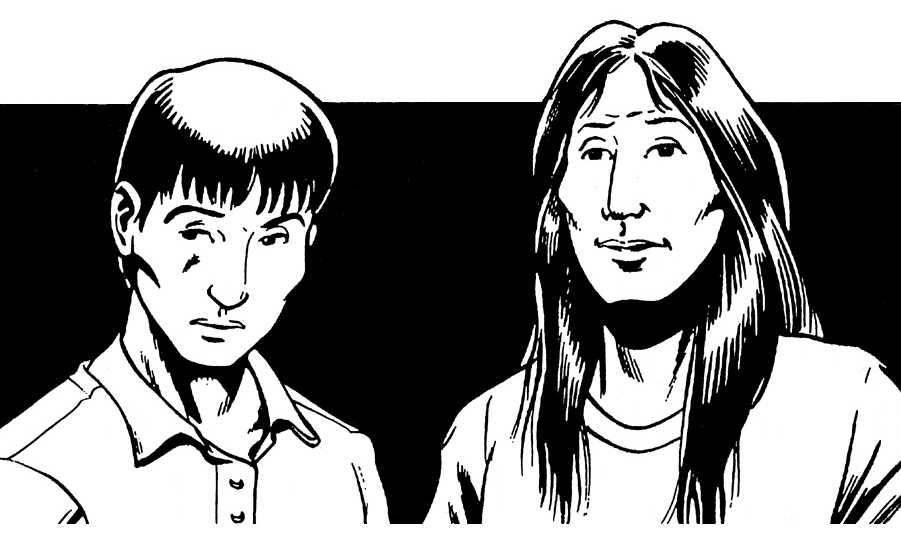 A response to Reviews and Press Coverage:
A response to Reviews and Press Coverage: A response to Reviews and Press Coverage:
A response to Reviews and Press Coverage:
A critic who wishes to remain anonymous called PEACE PARTY #2 "a relict of the last days of the 'politically correct'" and added that "the book did poorly...." My reply to said critic:
You were mostly right. Here's the situation:
Yes, sales of PEACE PARTY were poor, for reasons I think I understand. They'll be better next time.
PEACE PARTY isn't part of "the last days of the 'politically correct'," since it isn't politically correct. Are you sure you know what this phrase means? In this context, it would mean portraying all the Indians as good and all the non-Indians as bad.
That's the opposite of what we've done. We intend to portray a full range of Indians—good, bad, and mediocre. You may have forgotten the evidence, but it's there and it's clear. Billy and Oliver argue with each other over who's doing the right thing. Drew implies Billy can't keep a girlfriend. Billy implies Drew is irresponsible.
An Indian security guard says white people smell funny. An Indian rancher tries to shoot a llama. Indians argue with other Indians over Big Mountain. Indians work for the mine that's despoiling the earth. Indian youths rob a convenience store. Etc.
These incidents and more show Indians in a negative—and thus realistic—light. If anything, they're politically incorrect, not politically correct.
Rob Schmidt
Publisher
PEACE PARTY
|
. . . |

|
All material © copyright its original owners, except where noted.
Original text and pictures © copyright 2007 by Robert Schmidt.
Copyrighted material is posted under the Fair Use provision of the Copyright Act,
which allows copying for nonprofit educational uses including criticism and commentary.
Comments sent to the publisher become the property of Blue Corn Comics
and may be used in other postings without permission.